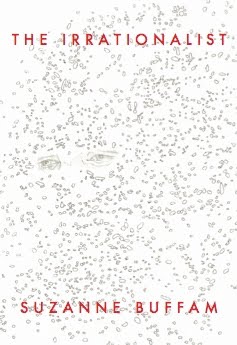Suzanne Buffam: The Irrationalist
Suzanne Buffam’s The Irrationalist opens with a quote from Paul Éluard: "There is another world, but it is inside this one." Her book echoes this quote throughout, beginning with her opening poem, "Ruined Interior." In this poem, she contrasts the desire to find a better world, to "blink a bit / And touch things" as if rearranging the objects might change their substance, with the beauty of the mundane:
Notice how dust describes
A tin can by not falling
Where it sits, or how a red sleeveGlimpsed through curtains
Mimics the tip of a flickering
Wing, was the whole day a wasteOr can worth be conferred
On a less than epic urge?
At times this better world seems to be a platonic ideal of our own; less frequently, it is a personal vision of a religious heaven. Either way, these ideal versions of the world are presented as inaccessible to us, and therefore irrelevant, as in the poem entitled "Ideal Tree," where the ideal seems to be meaningless, and possibly indulgent:
No one even notices the tree.
No one sees it burning coldly
Through all the foggy mornings
Of your misinterpretable world.
As misinterpretable as it may be, the speaker in these poems refuses to give up this real world for a promised one, as in the lines, "Don’t tell me there’s another, / Better place. Don’t tell me. / There’s a sea / Above our dreaming sea." This refusal appears as stoicism in other poems, such as "Amor Fati," where seemingly contradictory statements like "There is no such thing as a dream that comes true" and "Every dream is already true the moment it is dreamed" suggest various disappointments in life might be a product of our own misinterpretation. Yet the tone of these poems is not resignation, but rather a championing of the world as it is rather than what we’d have it be.
There are aspects of this book that will prove divisive for some readers. Buffam repeatedly uses aphorism in these poems, sometimes seriously, sometimes comedically. Their effectiveness is contingent on the receptiveness of the reader to statements like, "To be ahead of one’s time may be the same as being very far behind it," and "Man stands in his own shadow and wonders why it is dark." Depending on one’s outlook, these might read as thoughtful and thought provoking, or as armchair philosophy. Buffam, however, seems to have the chops to back them up, and her many references to philosophers, writers, musicians, and painters, show a mind well-versed in classical and modern thought. Whether the reader will feel tolerant of fairly regular references is another matter, but I found them illuminating overall.
What really makes the book sing are the repeated moments of humor coupled with poignancy, which puncture the heady intellectual atmosphere and bring us back to the real world once more, as in the short poem, "On Invective": "Fuck you and the horse you rode in on / Is often just another way of saying come back." These poems won’t say anything so harsh to you, but you’ll find yourself coming back regardless.
 Suzanne Buffam
Suzanne Buffam